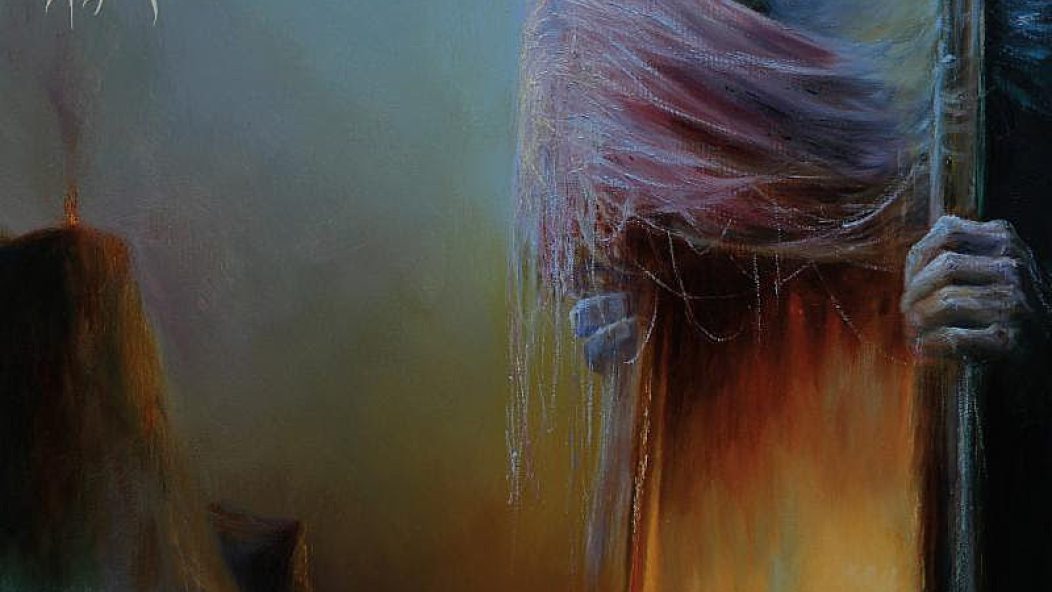
A Brief History Of Long Songs
…
Bell Witch, a Seattle based doom duo, recently announced Mirror Reaper, their third full length album due out on October 20th. Here’s the tracklist for Mirror Reaper:
1. Mirror Reaper
That’s it.
Mirror Reaper is one song, clocking in at roughly 83 minutes and split over two discs with the subtitles “As Above” and “So Below” (more on that later). As a drone-intensive doom band, Bell Witch are no strangers to lengthy songs. Their previous album, 2015’s Four Phantoms was made up of (as the name implies) four songs that range from ten to 23 minutes each. Even for a band that regularly writes songs as long as episodes of Bojack Horseman, Mirror Reaper is a massive escalation of scale. It’s nearly 3.6 times longer than the band’s longest song and outlasts Longing, their heftiest record, by 16 minutes.
Bell Witch are far from the first band to stretch a song to this length, especially in a genre as prone to one-up-manship and extremity creep as heavy metal. It’s only natural that as tempos in doom metal slowed, songs would gradually expand to the very limits of recorded music formats. Bands like Sleep and Boris turned the single-album-single-song gimmick into an artform on Jerusalem and Absolutego, respectively. Both records treated the basic principles of doom — slow tempos and meditative repetition — as golden rules.
…
…
With the new expanded storage capacity of compact discs, up to 80 minutes, single track albums grew like goldfish in an oversized aquarium. At this marathon length, it feels silly to consider these pieces to be “songs” in the traditional sense. When a riff can last several minutes without substantially changing, thinking of a song like “Jerusalem” in terms of verses or choruses is pointless. They become something that happens to you rather than something you observe from a distance. Play long enough and loud enough, and you can dissolve time itself.
By the mid-2000s, long-song fever had spread even further. Nadja’s Thaumogenesis combined doom metal with shoegaze, Corrupted alternated between delicacy and demolition on El Mundo Frio, and even a grind band like Pig Destroyer took a stab at the form on Natasha. Writing one song longer than the entirety of Reign In Blood is a sure-fire a way of showing the world that you mean business. For any band slow moving enough to attempt it, the risk of failure is surprisingly small. If the album is meant to be experienced in a single, exhausting listen, getting rid of those pesky track divisions isn’t just ambitious, it’s efficient.
Doom isn’t the only subgenre of metal with a penchant for the single-song albums, it just happens to be the medium that Bell Witch selected for Mirror Reaper. Metal’s other super-long tradition operates in a vastly different way, but in order to break down how and why, we’ll need to enter the dreaded “prog zone.”
Do you have your shimmering cape and refrigerator-sized modular synthesizer ready? Good.
Just like the doom innovators of the 1990s, progressive metal bands also saw the birth of the CD as a chance to push forward the genre’s limits. During the age of vinyl, progressive rock bands, routinely made albums — like Yes’s Fragile or Pink Floyd’s Dark Side Of The Moon — that were divided into distinct songs but flowed seamlessly from one to another, suggesting that each song itself was a movement of a larger composition. This only became more explicit as the “side-long epic,” a single song long enough to take up an entire side of a vinyl record, became commonplace. Songs like “Close To The Edge,” “The Gates Of Delirium,” and “Lizard” proudly delineated their subsections by Roman numerals. Freed from the physical limits of vinyl, modern prog metal bands were quick to expand on this concept. Both traditionalists (Dream Theater, Fates Warning) and more extreme acts (Edge Of Sanity) carried the single-song album to the turn of the century, where Meshuggah, Green Carnation, and Between The Buried And Me pushed the form into even stranger territories.
…
…
(It should be noted that the more conventional side-long epic still lives on. More bands than we could ever name have found the space for 20+ minute songs on their records, and other bands like Cephalic Carnage, Skepticism, Swallow The Sun, and Gorguts have released EPs with single tracks around that length).
These prog records, while similar to doom’s feature-length releases in size, are worlds different from albums like Dopesmoker. If doom bands value repetition and glacial variation in structure, progressive rock and metal are built on continuous change and development. Instead of letting you explore a single space in fine detail, prog takes you on a whirlwind tour of the entire neighborhood. Or, to take an example from modern television, doom metal works like an episode from Twin Peaks: The Return, resting on a static image for as long as it feels like, even if that means that you’ll be watching a man sweep an empty bar for minutes on end. Progressive metal single-track albums are like “The Dragon And The Wolf” from the seventh season of Game Of Thrones, so crammed full of plot points that an hour-and-a-half runtime is the only way to fit them all in.
…
…
From the ten minute excerpt that Bell Witch have released from Mirror Reaper, it looks like they’re more Dougie Jones than Jon Snow. Using an organ to fill space, Bell Witch ring every ounce of pathos that they can from a limited range of notes before gradually building to a heartbreaking lead. Given the rest of their discography, it’s safe to assume that the rest of “Mirror Reaper” keeps this funereal tone, but 83 minutes is a long time, plenty long enough for them to make a few detours before looping back into the procession. Who knows? Maybe the second disc will break into upbeat bluegrass for no discernible reason. (Sorry BTBAM fans, low-hanging fruit).
Jokes aside, Bell Witch’s decision to split Mirror Reaper across two discs is a necessary one, given the spacial limitations of both vinyl records and CDs. Mirror Reaper’s runtime pushes against the boundaries of any popular physical media, but a large portion of its listeners will hear it without moving their needle. People’s listening habits favor streaming music (legally or otherwise) versus consuming CDs, cassettes, etc., and that trend isn’t likely reverse anytime soon. Unlike the old mediums, digital releases aren’t constrained by physical limitations and could, theoretically be as long as the artist desired. Spotify happily hosts 90 minute podcasts, and Bandcamp allow artists to upload hefty files after they’ve reached a high enough number of sales. YouTube, the nearly lawless international waters of the digital ocean, is teeming with videos that cross the ten-hour mark easily.
An 83-minute long doom song is an eye-catching premise now, and broadly speaking single-track albums will always be an oddity, but Mirror Reaper only scratches the surface of the form’s capabilities in the digital age. In the coming years, ambitious artists looking to push the long-song tradition further have vast, untouched depths to explore. A single song longer than The Godfather is no longer out of the question. The walls of the fishtank no longer exist, the goldfish are free to be godsized.
…











